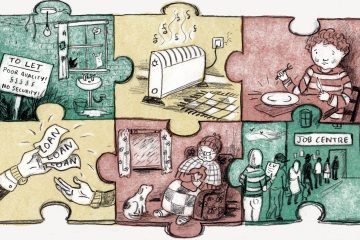On 2nd May 2019 over twenty professionals, practitioners, experts by experience and academics gathered at the University of Warwick for the first Midlands Food Security Network event. The Midlands Food Security Workshop aimed to bring people together from across the region to understand what the current food poverty issues are in the region, and to explore areas for future research, action, and policy development. The workshop was generously funded by Warwick’s Food GRP.
Stephanie Denning, Research Fellow on the Life on the Breadline project, attended the event as an academic in the Midlands working on food poverty issues. During the day, small groups worked through five questions. We took each question in turn with key discussion points recorded by each group on flip charts. The Network organisers are analysing the key points for a report that they will share at the Midlands Food Security Network launch on 20th June 2019. Stephanie was part of a group of five – with three practitioners, and one Masters student. It was great to work with people with a mix of experiences. Below are summaries of our group’s discussions:
Question 1. What is already going on in terms of action?
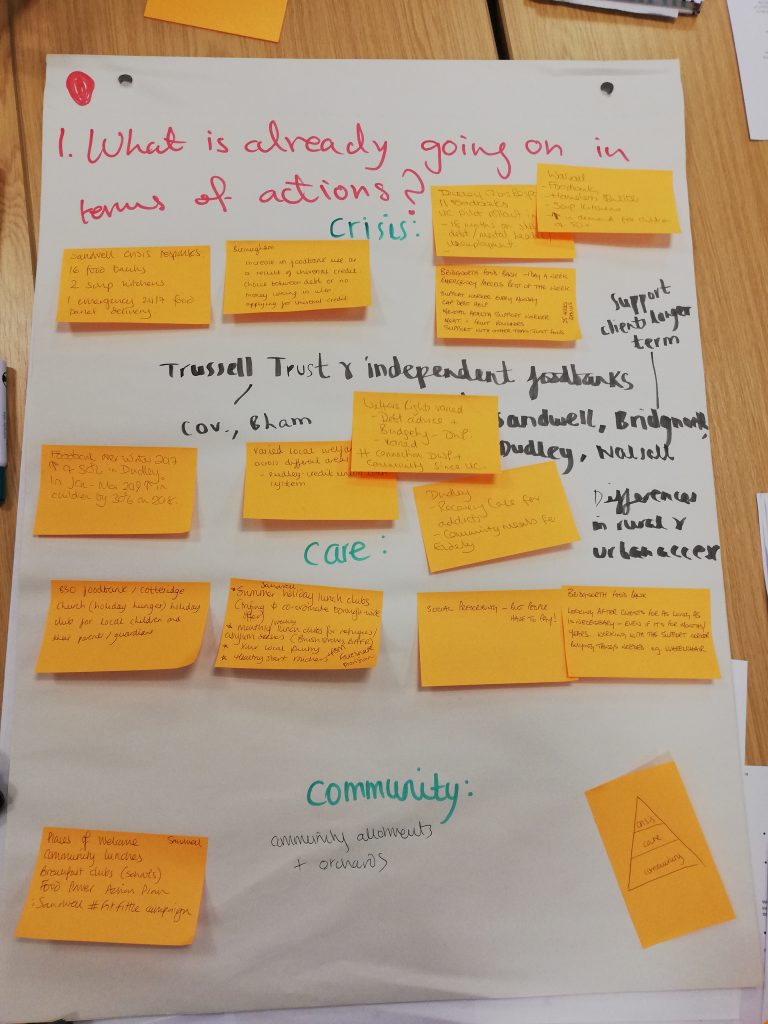
We discussed what is already going on in the Midlands to respond to food poverty in three areas: crisis, care, and community.
First, the crisis responses discussed were mainly food banks (both independent and Trussell Trust). There was evidence in the areas we worked of food bank use increasing as a result of the roll out of Universal Credit.
Secondly, care responses included clubs and free meals in the school holidays to tackle holiday hunger, local pantries, and lunch clubs for refugees and asylum seekers. Thirdly, community responses that the group discussed included community lunches, Food Power Action Plans and community allotments.
Question 2. What research needs to be done from a non-academic perspective?
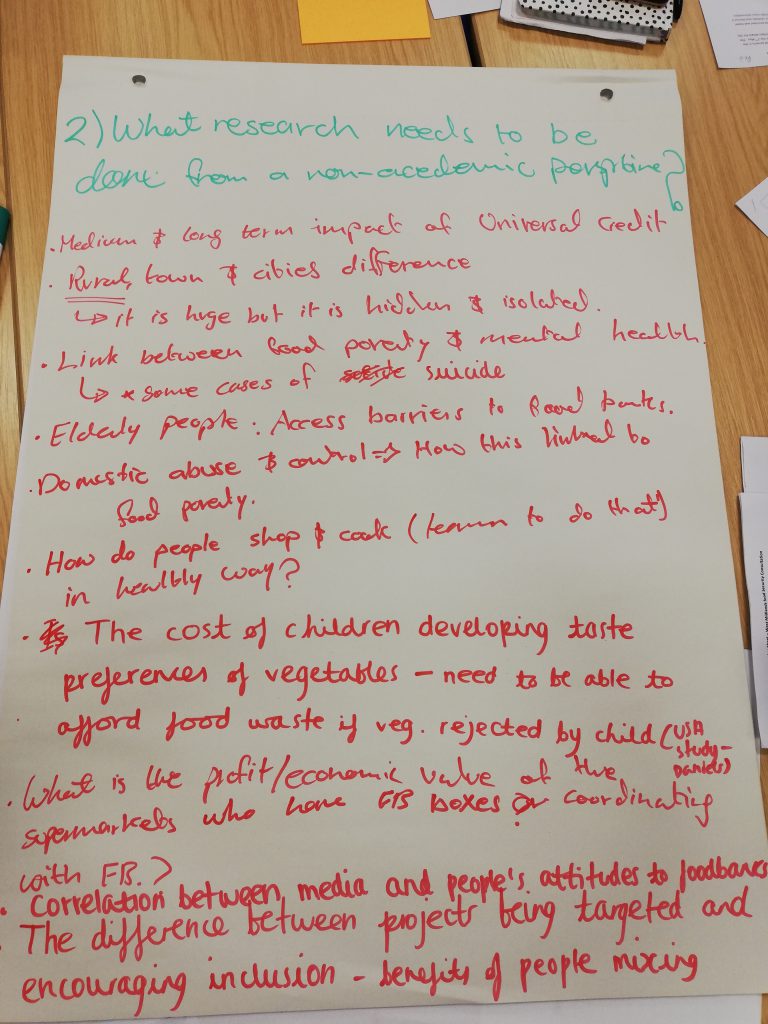
Our group had a wide range of ideas for what research could be undertaken. Our ideas included understanding the medium and long term impact of Universal Credit, understanding rural poverty as well as urban poverty, and knowing more about how elderly people access help (or do not) with food poverty.
Other areas that we wanted research to focus on included research into possible links between people experiencing domestic abuse and poverty, and the link between experiencing food poverty and a person’s mental health.
We also wanted to know more about the profit/economic value for supermarkets that collect for food banks.
Question 3. What food security issues are specific to the Midlands?
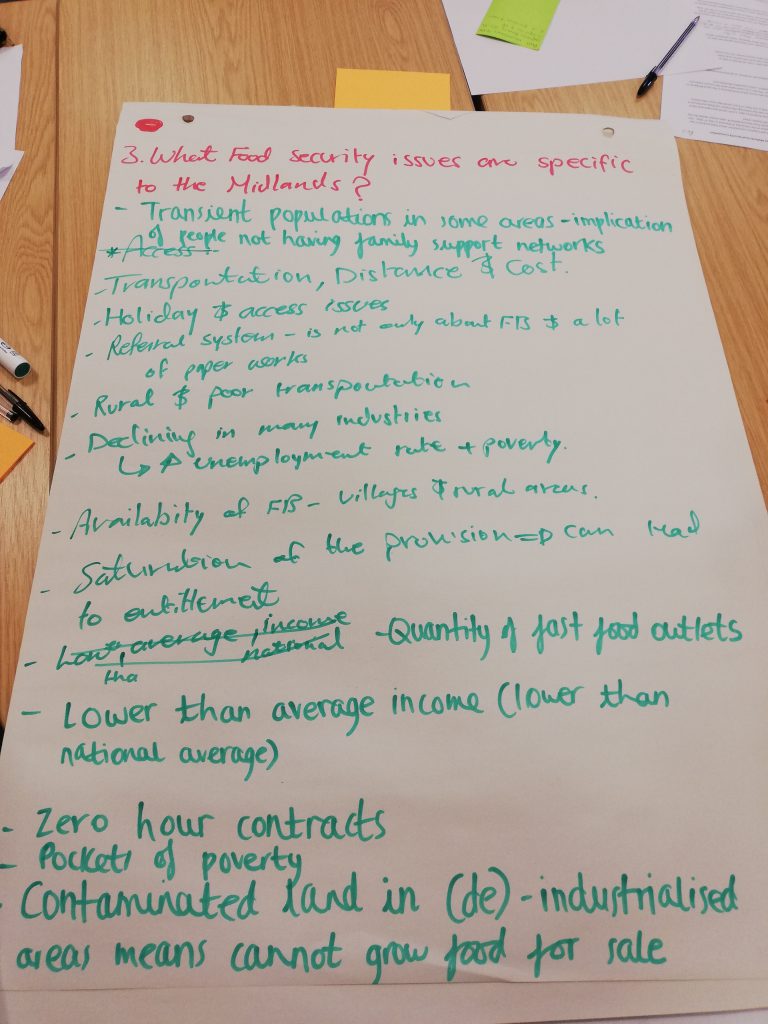
At first our group struggled to think of issues that are specific to the Midlands because we thought the issues were likely to be reflected nationally. However, we then thought of multiple issues that do occur in the Midlands:
- Transient populations in some areas -means that people may not have family support networks
- Decline in many industries resulting in unemployment and poverty
- Contaminated land in (de-)industrialised areas which means that food cannot be grown there for sale (including community growing projects)
Question 4. What are the ‘policy asks’ for the region?
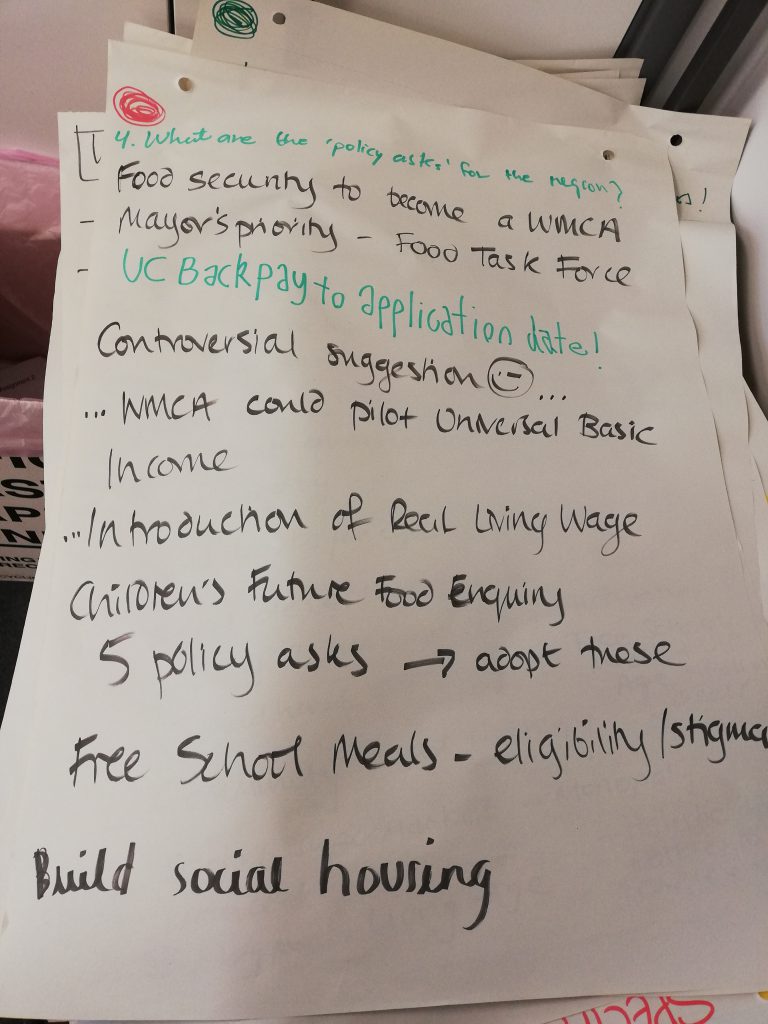
For this question, we discussed how the Food Security Network could link with the work of the West Midlands Combined Authority (WMCA) Mayor.
The group talked about two suggestions that they felt were more controversial – that the WMCA could pilot Universal Basic Income, and introduce the real living wage (rather than the minimum living wage) across the Midlands.
We also agreed that the policy asks from the recent Children’s Future Food Inquiry report should be adopted across the Midlands.
Question 5. What actions need to be taken?
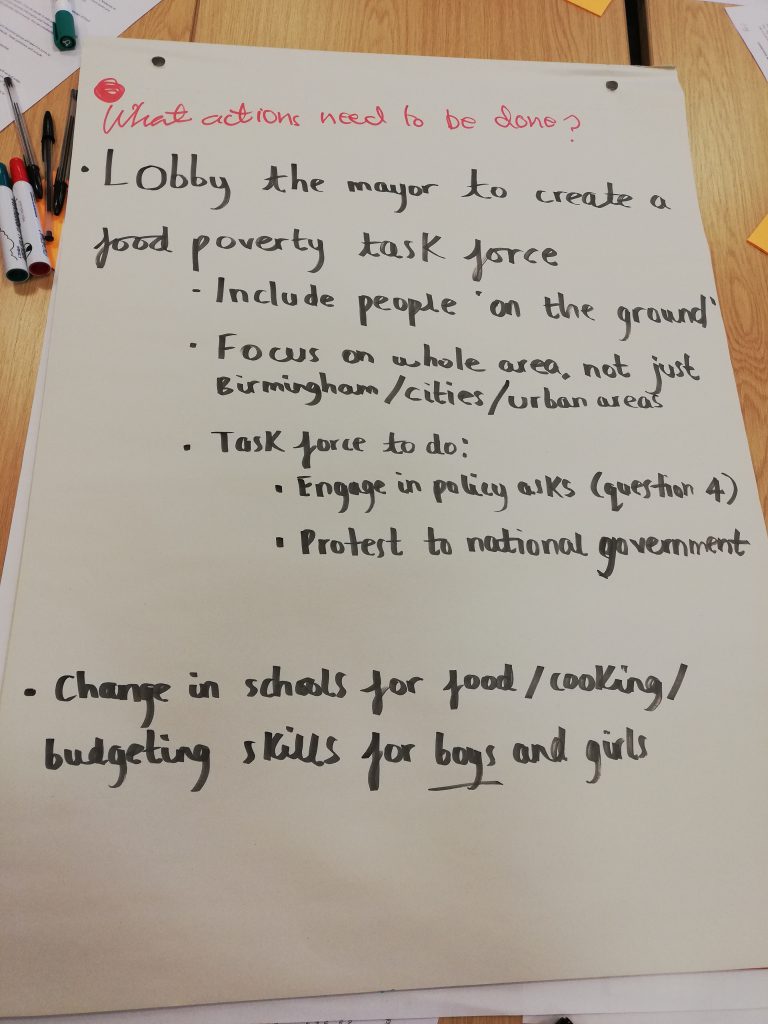
In our group we thought that we have covered several important actions in response to question four – the policy asks. We discussed two further ideas for actions:
1. We considered how the WMCA Mayor could be lobbied to create a food poverty task force. The task force would engage in the policy asks (response to question four), and engage with the national government for change.
2. We discussed that there should be change in schools for food/cooking/budgeting skills to be taught (currently Food Technology has replaced Home Economics which has less emphasis on nutritional design of meals, and food costs).
Thank you to the organisers for facilitating great discussions – the Life on the Breadline team is looking forward to attending the Midlands Food Security Network launch event.
If you would like to find out more about the Midlands Food Security Network, including the launch event, please contact the organisers – Dr Martine Barons at the University of Warwick (Martine.Barons@warwick.ac.uk), Dr Kayleigh Garthwaite at the University of Birmingham (k.garthwaite@bham.ac.uk), and Andy Jolly at the University of Wolverhampton (a.jolly@wlv.ac.uk).


